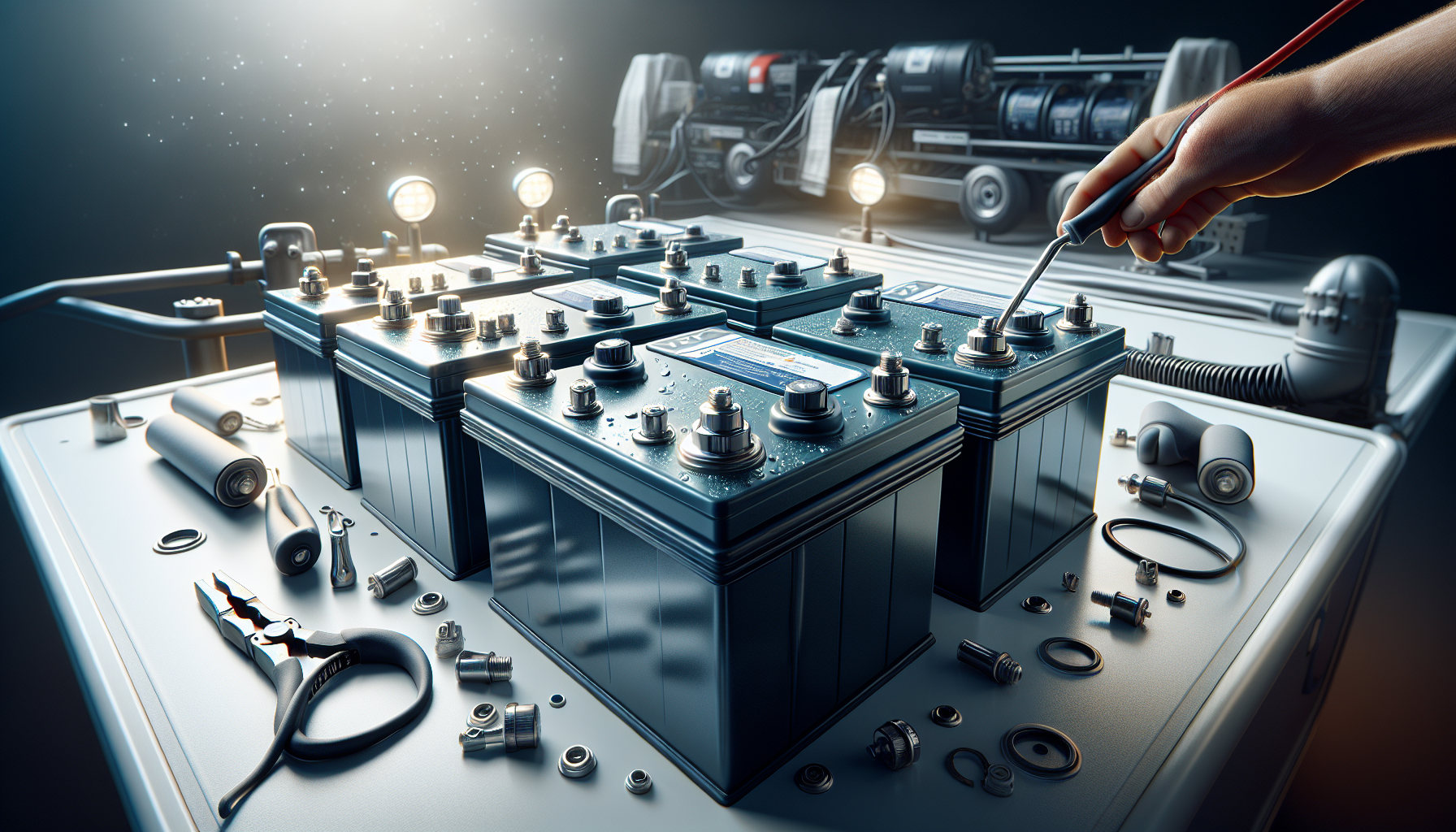Your cart is currently empty!

How Do I Maintain The RV’s Electrical System?
How Do I Maintain The RV’s Electrical System?
You are embarking on a new adventure with your RV, and one of the essential aspects to pay attention to is its electrical system. Proper maintenance ensures that you have a reliable power source while on the road. Let’s dive into the details of how you can maintain your RV’s electrical system effectively.

Understanding Your RV’s Electrical System
Before diving into maintenance tips, it’s crucial to understand the components of your RV’s electrical system. The system consists of two main parts: the 12-volt DC system and the 120-volt AC system. The 12-volt DC system powers the lights, water pump, furnace, and other essential components, while the 120-volt AC system runs larger appliances like the air conditioner and microwave. Understanding these systems will help you better maintain them.
Checking the Batteries
Your RV’s batteries are the heart of its electrical system, providing power when you’re not connected to shore power. Regularly checking and maintaining your batteries is essential for ensuring a smooth operation. Start by inspecting the battery terminals for corrosion and cleaning them with a battery terminal cleaner. Additionally, check the water levels in your lead-acid batteries and top them off with distilled water if necessary.
Inspecting the Wiring
Faulty or damaged wiring can lead to electrical issues in your RV. Periodically inspect the wiring throughout your rig for any signs of wear, corrosion, or damage. Pay special attention to areas where the wiring is exposed or where it comes into contact with other components. If you notice any issues, replace the wiring promptly to prevent further problems.
Testing the Inverter
The inverter is responsible for converting the DC power from your batteries into AC power for your appliances. Testing your inverter regularly ensures that it’s functioning correctly and providing the necessary power. Use a multimeter to test the input and output voltage of your inverter and compare it to the manufacturer’s specifications. If you notice any discrepancies, consider having a professional inspect and service your inverter.

Maintaining the Generator
If your RV is equipped with a generator, proper maintenance is crucial to ensure a reliable power source. Regularly change the oil and air filters according to the manufacturer’s recommendations. Additionally, test your generator periodically to ensure it starts easily and provides the necessary power. Keeping up with generator maintenance will prevent unexpected power failures while on the road.
Checking the Electrical Appliances
Your RV’s electrical appliances play a significant role in your overall comfort while traveling. Periodically inspect each appliance for signs of wear or damage, such as frayed cords or malfunctioning switches. Test each appliance to ensure it’s functioning correctly and providing the necessary power. If you notice any issues, repair or replace the appliance promptly to avoid further electrical problems.

Maintaining the Solar Panels
If your RV is equipped with solar panels, proper maintenance is essential to maximize their efficiency. Regularly clean the solar panels to remove dirt, dust, and debris that can reduce their effectiveness. Additionally, inspect the wiring and connections to ensure they’re secure and free of damage. Monitoring your solar panels regularly will ensure they continue to provide a reliable power source while on the road.
Testing the Shore Power Connection
When connected to shore power at a campground or RV park, your RV relies on an external power source to operate its electrical systems. Periodically test the shore power connection to ensure it’s providing the correct voltage and amperage to your rig. Use a digital multimeter to test the power source and compare it to the specifications outlined in your owner’s manual. If you notice any issues, contact the campground or park management to address the problem promptly.
Inspecting the Circuit Breakers and Fuses
Your RV’s electrical system is protected by circuit breakers and fuses that prevent damage in case of an electrical overload. Periodically inspect the circuit breakers and fuses throughout your rig to ensure they’re in good working condition. If you notice a blown fuse or a tripped circuit breaker, investigate the underlying cause and address it before resetting the breaker or replacing the fuse. Keeping up with these maintenance tasks will prevent electrical issues and ensure a safe operation of your RV.
Monitoring the Energy Consumption
Understanding your RV’s energy consumption is essential for maintaining its electrical system effectively. Keep track of how much power each appliance and component uses to avoid overloading the system. Consider investing in an energy monitoring system that provides real-time data on your energy usage. Monitoring your energy consumption will help you make informed decisions about when to use certain appliances and how to conserve power while on the road.
Creating a Maintenance Schedule
To ensure the long-term reliability of your RV’s electrical system, create a maintenance schedule that outlines regular tasks and inspections. Include tasks such as battery checks, wiring inspections, inverter testing, and generator maintenance. Stick to your maintenance schedule and address any issues promptly to prevent electrical problems down the road. By following a structured maintenance plan, you’ll have peace of mind knowing that your RV’s electrical system is in top condition.
Conclusion
Maintaining your RV’s electrical system is essential for ensuring a reliable power source while traveling. By understanding the components of your electrical system and following a structured maintenance plan, you can prevent electrical issues and enjoy a smooth operation of your RV. Remember to check the batteries, inspect the wiring, test the inverter, maintain the generator, and monitor your energy consumption regularly. With proper maintenance, you can rest assured that your RV’s electrical system will provide the power you need for your adventures on the road.